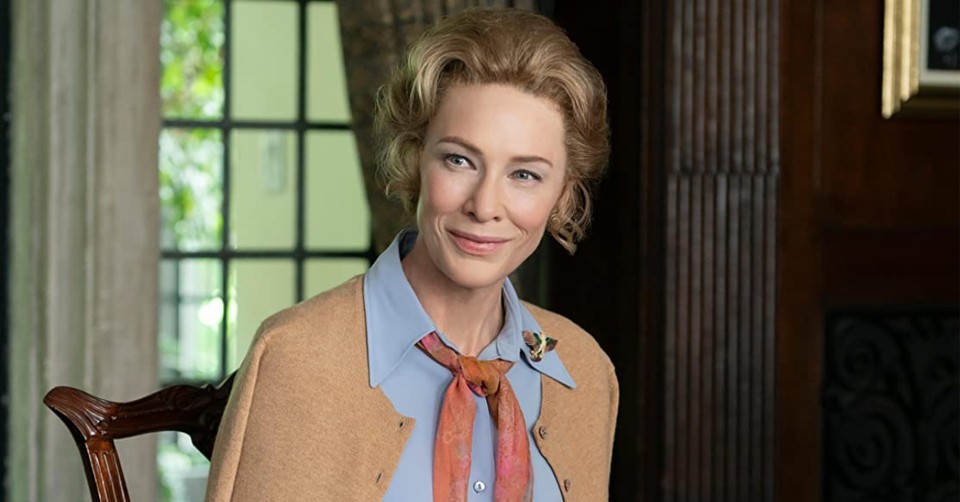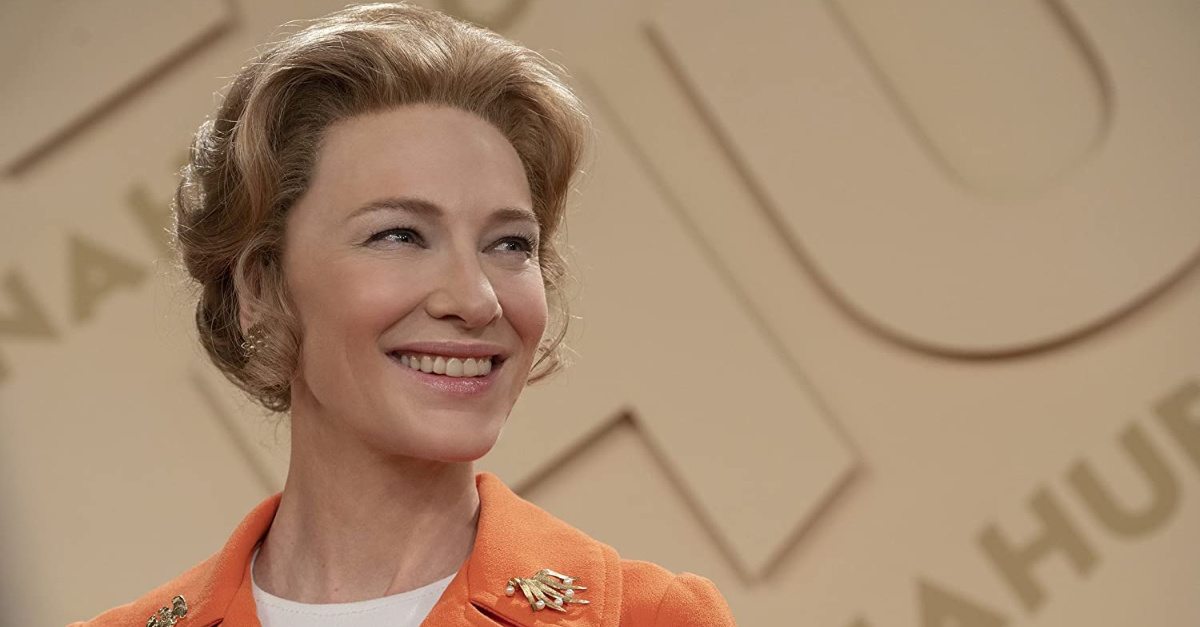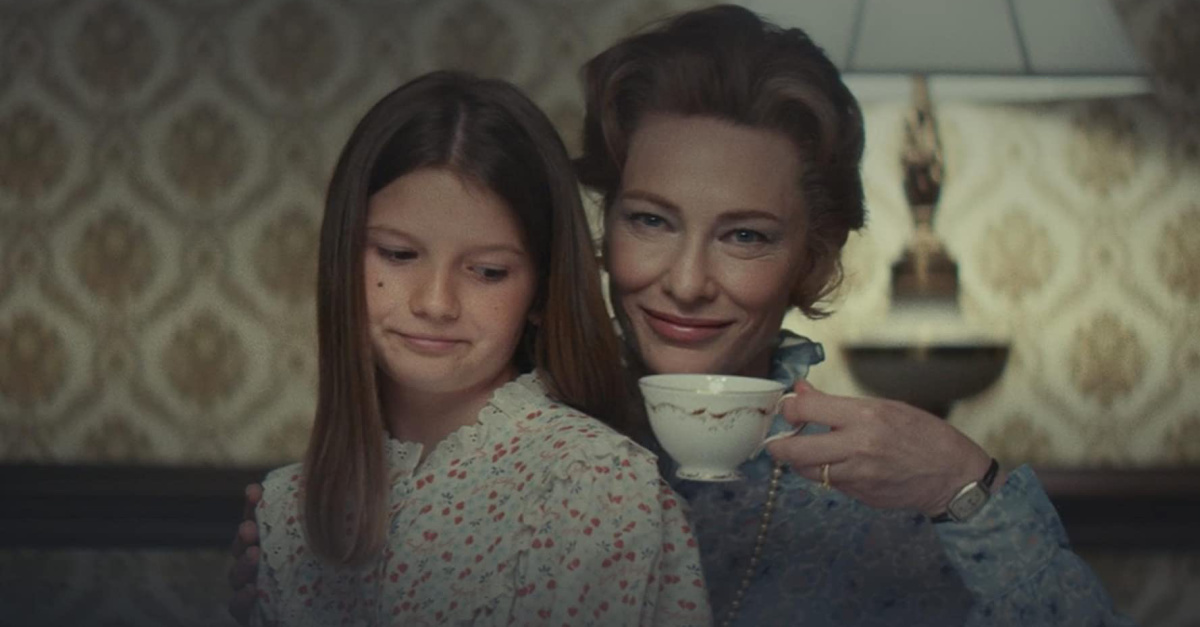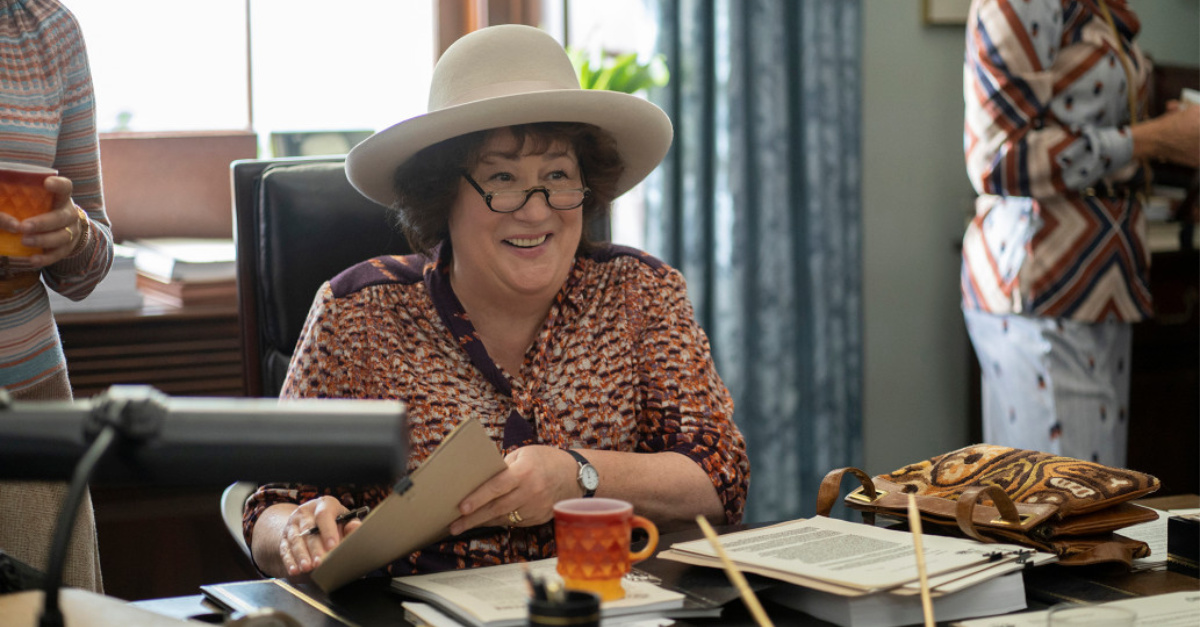4 Things You Should Know about Mrs. America, Hulu's Series on Phyllis Schlafly

Phyllis Schlafly is a glamorous middle-aged woman who also happens to be the smartest person in any room.
Yet she’s swimming upstream in her politics. It’s 1972, and she’s on the verge of launching a nationwide campaign to defeat the Equal Rights Amendment – a proposed amendment to the Constitution guaranteeing “equality of rights” between the sexes.
The Republican president supports the amendment. The Democratic presidential nominee, does, too. Ratification seems inevitable.
Yet Phyllis believes the amendment will lead to women being drafted and to courts legalizing taxpayer-funded abortion. Laws benefiting wives will be overturned, too, she says.
“There's one thing I’ve got going for me is the feminists think it’s settled,” Phyllis says of the ERA’s ratification. “They’re not expecting a fight.”
Will she succeed?
Mrs. America, now streaming on Hulu, tells the incredible story of Phyllis Schlafly’s unexpected battle against the Equal Rights Amendment and its subsequent defeat. The nine-part series stars Cate Blanchett as Schlafly, Rose Byrne as Gloria Steinem, Tracey Ullman as Betty Friedan, and Margo Martindale as Bella Abzug.
Here are four things you should know:
Photo courtesy: ©Hulu/FX

1. It Spotlights Phyllis Schlafly’s Brilliance
Schlafly’s quick-wit and intelligence are on full display. She goes to Washington D.C. to discuss arms control with a room full of male legislators and aides – but changes topics on a dime and gives them much-needed talking points on the ERA. She accepts an invitation to appear on the talk show Donahue – and subsequently outsmarts the famous liberal host. She debates National Organization for Women founder Betty Friedan – and makes her so mad that she calls Schlafly a “witch.”
She opposed the Equal Rights Amendment when few others were doing so.
“She was such a bright woman – really one of the most intelligent women I've ever met,” Penny Nance, president of Concerned Women for America, told Crosswalk. “... She was brilliant, astute and strong. She was often the only woman in a group of men and certainly the smartest person in the room.”
Cate Blanchett’s performance is impressive.
(If you’ve never watched Schlafly’s debates on YouTube, it’s worth your time.)
Photo courtesy: ©Hulu/FX

2. It Lampoons Schlafly’s Army
Schlafly’s Stop ERA supporters were motivated and smart, but you wouldn’t know that by watching Mrs. America. Many of the housewives in Mrs. America seem as if they were transported from an SNL skit.
“I thought they really made them out to look like sad sacks,” Schlafly’s daughter, Anne Schlafly Cori, told Crosswalk. “They try to draw this contrast that they had boring lives and the feminists had exciting lives.
Ironically, it was this dismissive, lampooning attitude of the 1970s feminists that led to their stunning loss. Friedan even labeled Schlafly an “Aunt Tom.”
The series flippantly lets Friedan’s character accuse Schlafly of accepting donations from the KKK. But as MovieGuide noted, even feminist and Schlafly biographer Carol Felsenthal said there was no such evidence: “I had high hopes for Friedan’s investigation, but like mine and many others, it fizzled.”
Photo courtesy: ©Hulu/FX

3. It Underscores the Abortion-ERA Ties
The heart of the Equal Rights Amendment is only two sentences: “Equality of rights under the law shall not be denied or abridged by the United States or by any state on account of sex,” and, “The Congress shall have the power to enforce, by appropriate legislation, the provisions of this article.”
The language may sound innocent, but Schlafly in the 1970s successfully argued it would lead to taxpayer-funded abortion.
Abortion is a major theme of Mrs. America. Steinem and her supporters pressure 1972 Democratic nominee George McGovern to support legalized abortion in the party platform. (Call it “reproductive freedom,” she urges. Later, she tells a Democratic official, “We don’t want anyone saying that abortion is murder.”) When he rebuffs them, they try but fail to force a convention floor fight on the issue.
In Mrs. America, Steinem and her backers promote a multiple-pronged strategy for its national legalization: 1) Support by political leaders, 2), promotion of lawsuits to the Supreme Court, and, 3) passage of the ERA.
Military service also is a key issue in Mrs. America, with Schlafly arguing that the Equal Rights Amendment will lead to the drafting of women. (Her concerns were warranted: In real life, an amendment to the ERA exempting women from the draft was defeated in the Senate.)
Photo courtesy: ©Hulu/FX

4. It’s Slanted … but Entertaining
Don’t watch Mrs. America if you want a facts-based lesson about Phyllis Schlafly. (Read a book and watch her old debates for that.) But if you’re a social conservative who can stomach a left-leaning program for nine episodes, it may be worth a watch. (I’m writing this having finished only the first four.) It’s a fascinating dive into the 1970s political and cultural battles. It’s not the “hatchet job” many expected. In several scenes, the feminists are the villains.
Mrs. America shows us that women aren’t automatically pro-choice. (Over the past decade, the percentage of women who label themselves “pro-life” in Gallup has see-sawed between 41 and 51 percent.) It demonstrates the power of an organized group of motivated volunteers. It highlights Schlafly’s intelligence. (Schlafly is among the most likable characters in the series.)
It also leaves you amazed that the ERA never passed. Needing 38 states to ratify it by March 22, 1979, it got No. 30 in 1973 and 34 in 1975 – needing only four more states in four years. It got only one more.
Schlafly’s worldview was framed by her Catholic faith – an issue largely ignored in Mrs. America.
Meanwhile, she brought together people of different faiths – evangelicals, Catholics and Jewish Americans, for example – to fight for a single cause. Cori is chairman of Eagle Forum, the organization her mother founded.
“It was quite a revolution and what started the pro-family movement,” Cori said.
Content warnings: Mrs. America is rated TV-MA for adult situations and occasional strong language. (The first four episodes contain two f-words.)
Entertainment rating: 3 out of 5 stars
Family-friendly-rating: 2.5 out of 5 stars
Photo courtesy: ©Hulu/FX
Michael Foust has covered the intersection of faith and news for 20 years. His stories have appeared in Baptist Press, Christianity Today, The Christian Post, the Leaf-Chronicle, the Toronto Star and the Knoxville News-Sentinel.
Listen to Michael's Podcast! He is the host of Crosswalk Talk, a podcast where he talks with Christian movie stars, musicians, directors, and more. Hear how famous Christian figures keep their faith a priority in Hollywood and discover the best Christian movies, books, television, and other entertainment. You can find Crosswalk Talk on LifeAudio.com, or subscribe on Apple or Spotify so you never miss an interview that will be sure to encourage your faith.
Originally published April 24, 2020.







